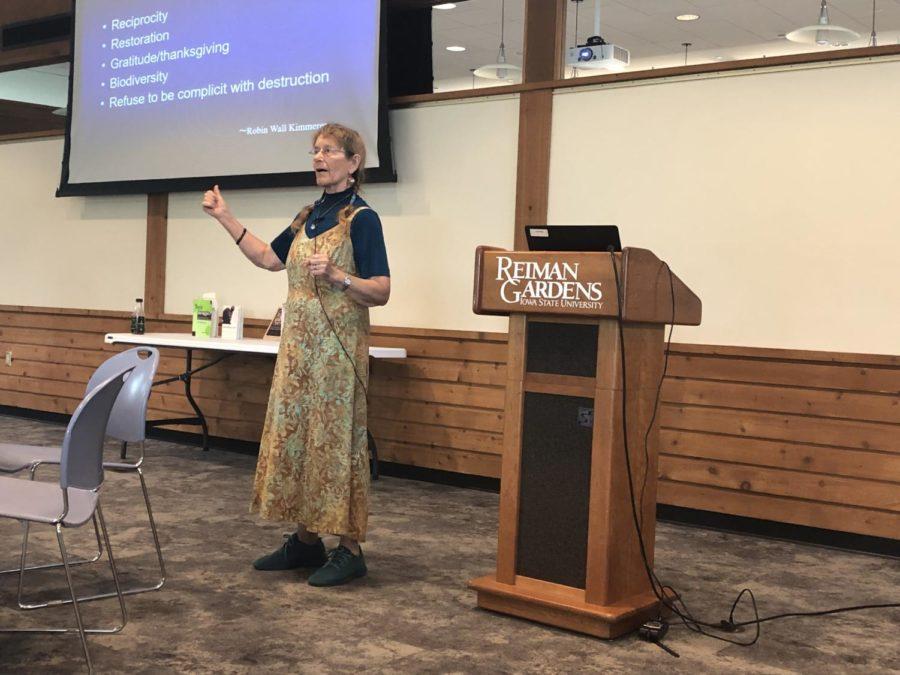Ecofeminism lecturers promote activism
Danielle Wirth, lecturer of sociology, presented a lecture on ecofeminism at Reiman Gardens during the September “Nature at Noon.”
September 12, 2019
Outside the heat was sweltering, but inside the Garden Room of Reiman Gardens attendees of September’s Nature at Noon sat in comfort.
The topic of this month’s Nature at Noon was Ecofeminism, and it drew a crowd of over 25 individuals.
Betty Wells, professor of sociology, and Danielle Wirth, lecturer of sociology, presented the lecture from noon to 1 p.m.
Wirth asked the attendees to define ecofeminism and one attendee defined it as the approach to environmentalism through a feminist lens, which Wirth said was completely correct.
Wells and Wirth then defined ecofeminism within their presentation as not one thing, but a mix of theory, practice and social movement. They said it can take many forms but nearly all ecofeminists agree that wrongful and interconnected dominations of women and nature exist and must be eliminated.
“To be an ecofeminist you have to be intersectional,” Wells said. “So how do the things we care about [connect] to other issues, not just the environment and women but also with social justice — how does it connect with civil rights.”
Wirth went on to define feminism because she said many people who are inherently feminist often revoke the word because of its negative connotation.
“Feminism is anything that leads to a better understanding of the lives and work of women,” Wirth said. “Feminism is advocating for the empowerment of women on their own terms, equal pay for equal work and the end of sexism and sexist exploitation.”
Wirth gave a list of various connections and intersections that relate to ecofeminism; these included historical, conceptual, empirical, socioeconomic, linguistic, ideological, symbolic, spiritual, epistemological, political and ethical.
“[Ecofeminism is] the logical confluence of two rivers, one a concern for the wellbeing of women, and the other a concern for the wellbeing of Earth,” Wirth said while quoting Elizabeth Dodson Gray, an ecofeminism pioneer.
Wirth discussed the various tie-ins of ecofeminist theory, such as the existence of a connection between the domination of women and the connection of the ideologies of those who support social injustices and those who sanction environmental exploitation and degradation.
“Concerns for the environment and women’s concerns run parallel to, are bound up with, are perhaps one and the same since both women and the environment have been treated with ambivalence and disrespect by the dominant culture,” Wirth said while quoting Jim Cheney, an ecofeminist.
One attendee brought up the recent rollbacks on WOTUS and Wirth went on to talk about how that relates to ecofeminism.
“There are no children that play in my watershed nowadays and it is because of industrial agriculture,” Wirth said. “We have allowed them to pollute our waterways to externalize the cost and they are making a lot of money.”
Throughout the lecture, Wirth brought up the Sunrise Movement and how many students within her classes at Iowa State have become part of this movement in mind if not in body.
The Sunrise Movement is a youth-led political movement created in 2017 that advocates for political action on climate change. To learn more about the Sunrise Movement go to their website.
At the end of the lecture, Wirth called for activism from the attendees, especially those individuals who are retired and have time on their hands or individuals who have influence in different places.
















